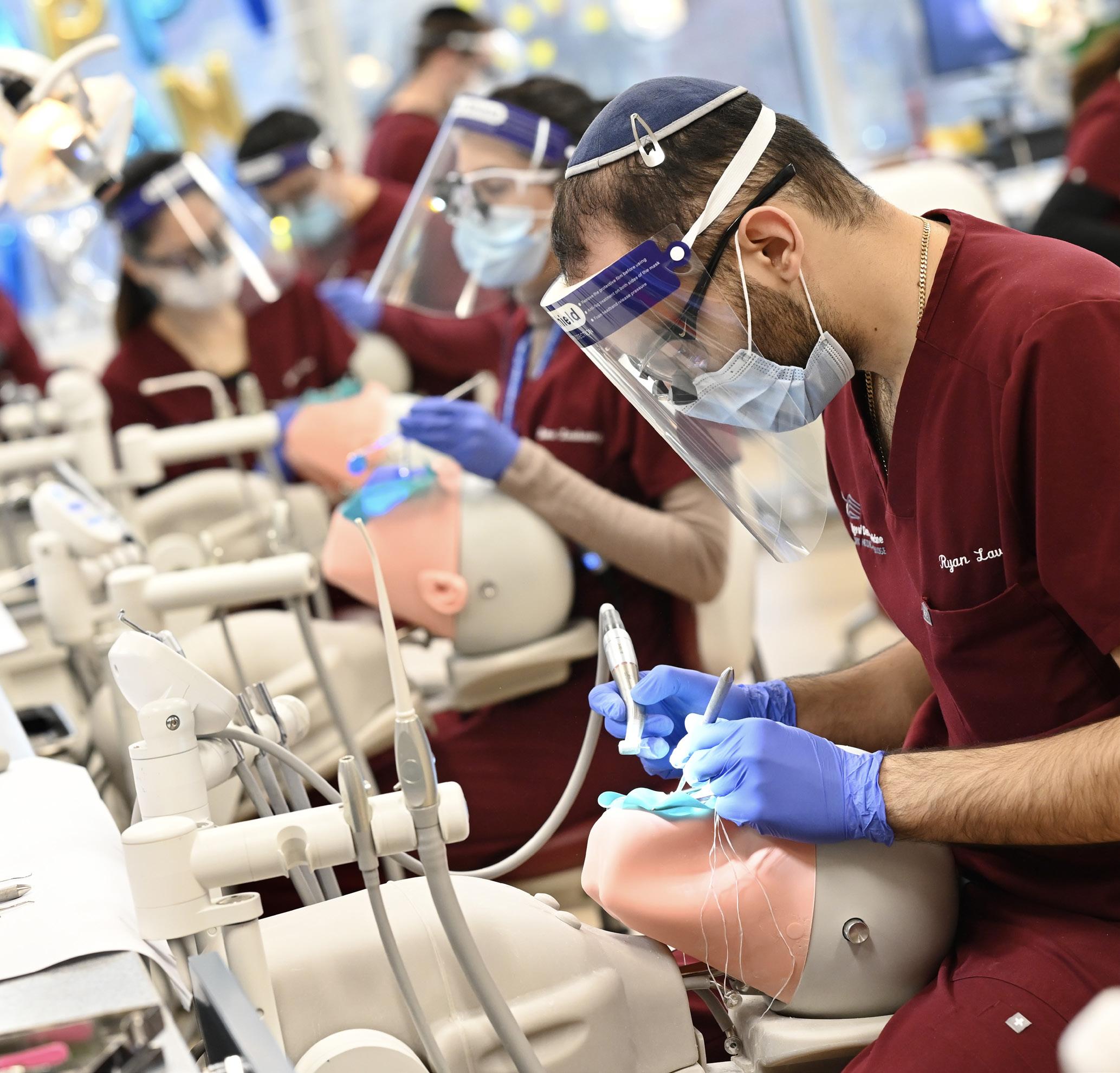
4 minute read
Graduate School of Social Work
In the wake of the pandemic, Americans of all ages are suffering from a host of mental health issues, as rates of depression and anxiety increase. There is a great demand for social workers to address these needs and employment is projected to grow 13 percent through 2029, according to the U.S. Department of Labor. The Touro Graduate School of Social Work (GSSW) is meeting the call with more than 300 students pursuing the Master of Social Work (MSW) degree. As the school expands, GSSW attracts a diverse student body and is emerging as a leader in its class. Touro GSSW was recently named “Social Work School of the Year” by the National Association of Social Workers NYC Chapter and honored with the Outstanding Educational Leadership Award from the Latino Social Work Coalition and Scholarship Fund, Inc. (LSWCSF).
The growing student body of clinical practitioners serve at-risk and vulnerable populations—the embodiment of Touro’s mission to create a more just and compassionate society.
ENGAGING THE COMMUNITY
The school’s culturally competent student body is developing a strong track record of community engagement. More than 280 agencies have served as clinical partners, providing opportunities for Touro students to contribute 120,000 hours of service annually through rotations to the elderly, the homeless, victims of domestic violence and other needy and at-risk populations.
In addition to community service in the field, the
Rachel Assael, LCSW
Social Worker, Memorial Sloane Kettering Cancer Center
What may seem like a mind-blowing career change to some, made perfect sense to Rachel Assael, LCSW—who went from fashion marketing and advertising to supporting cancer patients at the end of their lives.
“My first career was exhausting, and my current career is exhausting, but there was nothing meaningful, special or rewarding about the first career,” says Assael, 33, a clinical social worker in Memorial Sloan Kettering Cancer Center’s Supportive Care Service, also known as palliative and end-of-life care. “Now I’m perfectly happy to be exhausted because I’m doing something I love and something that matters.”
Assael graduated from Touro in 2015 with a master’s degree in clinical social work. “The professors were very good, and I liked getting to know my peers in the graduate program,” she says. “Of course, I still remember my professors, but what’s so surprising to me is that they still remember me—by name! That’s the kind of environment it is.”
Assael, a runner who lives in Manhattan, spends her workdays focusing on her cancer patients and their families. From assessing psychosocial factors impacting pain to assisting with practical concerns and participating in goals of care discussions, she adds value to their days even as they enter the last stages of their lives. Assael offers supportive counseling around transitions to hospice care, endof-life and anticipatory grief. “I focus on quality-oflife issues and meaning-making with patients and those who love them when they are at their most vulnerable,” says Assael.
She cares deeply for her patients but has taught herself to keep healthy boundaries so she can shield herself from compassion fatigue and emotional burnout. Still, there is always one who is unforgettable, in life and in death. Assael grew attached to a police officer in his 40s. His plan had been to run the New York City Marathon, but it was canceled due to the COVID-19 pandemic. “So, he ran it anyway, alone, even at a point in his cancer journey where he was physically declining. His wife drove next to him in the car for 26.2 miles,” Assael says, still moved in the telling. “It was a love story, and it was a life-affirming story. Even as he was dying, he lived!”
When friends or strangers ask her how she can work in such a grim environment, Assael is truly perplexed by the question. “To be a witness to patients who know death is near, who are facing their own mortality, is an absolute honor,” she says. “The process of dying strips away layer after layer that used to seem important, and they realize the things that matter most have no monetary value. Not to sound corny, but what matters is love: family, friends, children, pets, spirituality. Every time I leave a patient’s room, I feel so fortunate to be doing this work. Every time.”
Graduate School conducts on-site “Community Days,” inviting guest lecturers to engage the college community on cutting-edge issues. This year, visiting experts discussed the health disparities in New York’s immigrant communities and the role of front-line social workers during the pandemic.
FEDERAL GRANTS FOR STUDENTS
GSSW has landed several prestigious grants from the Health Resources and Services Administration (HRSA) of the United States Department of Health and Human Services (HHS) for over $6M to fund monies for MSW students. The Scholarships for Disadvantaged Students program supports scholarships and provides awards to students accepted for full-time enrollment who meet economic and educational criteria, including underrepresented minorities.
THE HRSA Opioid Workforce Expansion Grant provides stipends to students who complete internships working in the field of addictions to help combat the opioid crisis. The Behavioral Workforce Grant is a collaborative grant which affords our social work students the opportunity to train alongside other professionals in the area of occupational therapy and clinical mental health counseling to foster a more interdisciplinary approach toward client-centered care. These grants are in line with Touro’s mission of providing accessible and affordable quality education to the underserved and training students to become professionals who serve the most vulnerable populations. So far, over 100 grant recipients have graduated and continued on to meaningful social work careers, making an impact on the lives of so many who struggle with a variety of mental health issues.












